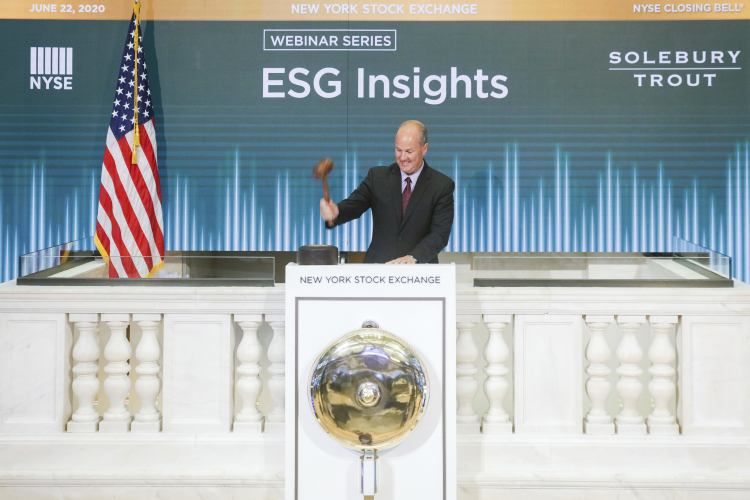Let’s begin with the plain: Oil is the world’s most essential gasoline, supplying 35% of all vitality and over 95% of transportation wants. Greater than 6,000 on a regular basis merchandise include oil as their core ingredient. Merely put, oil has no vital substitute, and it gained’t for a very long time. Large quantities of wind and photo voltaic gained’t displace “black gold” as a result of these sources compete solely within the power-generating sector, the place oil successfully performs no function.
Most Individuals in all probability don’t notice that electrical energy already misplaced the transportation race to grease and its highly effective by-product – gasoline – 120 years in the past. In 1900, practically 40% of U.S. automobiles had been electrical. At the moment, lower than 1% of automobiles run on electrical energy (1.8 million out of 270 million). Regardless of the big subsidies thrown on the business over the previous 10 years, electrical autos largely stay “toys for the wealthy.”
Because the world’s economies rebound from COVID-19 and journey inevitably picks up, the necessity for extra oil is turning into much more urgent. After the oil business set a global-demand document in 2019 at 101 million barrels per day, the pandemic plunged demand to 92 million b/d in 2020. The Division of Vitality, nonetheless, has simply forecast that consumption will rise to 98 million b/d this 12 months and above 101 million b/d in 2022.
Not even a value surge has slowed the necessity for a gasoline embedded in nearly every part we do: Oil costs simply noticed their greatest first half since 2009 (see beneath). In current months, oil firms have had the very best run of any sector within the S&P 500. Traders that wager towards, or pulled out of, U.S. oil fund USO (NYSEARCA:USO) have been burned. The favored oil Change Traded Fund practically doubled in worth since October final 12 months, and others resembling DBO, BNO, and USL are as soon as once more making for sound investments.

This rising demand exposes the wrongheadedness of the ESG — environmental, social, and company governance — push and the feel-good folly of divesting from oil firms.
Cash managers demanding divestment of oil from their funding portfolios are costing their purchasers cash – the pension funds, mutual funds, and IRAs largely owned by on a regular basis Individuals. Banks leaving oil behind to fulfill ESG lovers have seen “shadow lenders” and hedge funds gladly fill the void.
This shouldn’t shock us.
As a current RealClearFoundation report famous, ESG violates fashionable funding principle, which emphasizes portfolio diversification, as a result of it shrinks the universe of shares that may be purchased. Oil has lengthy been a mainstay within the vital must diversify any portfolio. This explains why a 2017 research on the College of Chicago Legislation Faculty concluded that divestment may imply shortfalls of trillions of {dollars} for the nation’s high pension funds.
Against this, enter costs for photo voltaic and wind – e.g., metal, labor, transport – have been hovering, and price declines for renewables are already beginning to flatten out. That is taking place a lot quicker than predicted and is an issue more likely to worsen as decarbonization objectives enhance demand. The Wall Road Journal lately reported on the struggles of much-touted renewable vitality shares.
Consultants at Piper Sandler consider that oil (and gasoline) shares will proceed to outperform photo voltaic even in the long run. Eiji Hirano, former head of the world’s largest pension fund, warns of an ESG bubble as a result of there’s been no actual evaluation to find out whether or not “ESG is de facto worthwhile.”
Divestment strain has been integral to the continual underinvestment in additional oil manufacturing, particularly within the upstream E&P (exploration and manufacturing) sector that permits new manufacturing to satisfy new demand. Divestment, subsequently, is definitely an anti-ESG place as a result of it’s destined to result in greater vitality prices for Individuals, proving notably dangerous to communities of shade and low-income teams – the identical populations that ESG advocates declare profit from ESG insurance policies.
And not using a vital substitute for oil, divestment is an apparent downside as a result of the world’s oil fields decline naturally by 6% to eight% yearly, making incremental funding in new provide necessary, even when demand stays flat or declines. At the moment’s push towards oil may thus be sowing the seeds for the subsequent recession by facilitating an enormous spike in costs.
Financial institution of America already forecasts $100 oil in 2022, and some consultants consider that the dearth of funding we’ve seen may ultimately push the worth to $200.
In different phrases, those who have divested, or insist that we divest, from oil will depart much more cash on the desk for OPEC and Russia as an alternative of on a regular basis Individuals.
Western media likes to marketing campaign towards “Huge Oil,” however the time period is deceptive, at greatest. Huge Oil, as Western media conceives of it, constitutes solely about 15% of world oil manufacturing and holds only a fraction of confirmed reserves. The time period can be way more appropriately used for these oil firms that systematically restrict competitors, search international market dominance even on the expense of human rights, and revel in limitless backing from the governments that management them: in different phrases, the 13-member OPEC cartel, Russia’s “nationwide champions” (Gazprom and Rosneft), and China’s state-owned enterprises.
That’s the true “Huge Oil.” They might be BlackRock’s greatest enemies if the corporate had been true to its ESG phrase. Collectively, OPEC, Russia, and China management practically 80% of the world’s confirmed oil reserves and are salivating on the probability to use the U.S. and Western retreat from the world’s most significant gasoline.
The three highest-earning oil and gasoline firms are all managed by the Chinese language Communist Get together. Oil is the prime fungible commodity offered on a global market, so these rogue gamers profit when their free-market competitors within the West loses market share.
Since 2008, the shale oil revolution has allowed the U.S. to chop its imports from OPEC to historic lows – an enormous ESG profit that will get conveniently ignored. As well as, OPEC, Russia, and China have far fewer environmental rules, so any elevated reliance on them for vitality is opposite to our local weather and emission-reduction objectives – and thus additionally opposite to purported ESG objectives.
We’re sleepwalking right into a geopolitical, environmental, and safety nightmare: China is already proving more than pleased to fill in for any lack of oil funding from Western banks.
Clearly, then, the ESG divestment motion bears the last word contradiction: working to harm Western oil firms on ethical grounds whereas advancing the reason for a few of the planet’s most repressive regimes.

Certainly, the anti-oil contradictions appear with out finish.
In Could, the Worldwide Vitality Company, the West’s personal vitality adviser (for the OECD nations), dropped a bombshell by saying that to satisfy local weather change mitigation objectives, there ought to be no new E&P (upstream) oil investments. This surprising declaration got here after a long time of IEA warnings that annual E&P funding would wish to repeatedly account for ever-growing demand. However simply weeks later, the IEA requested OPEC – a bloc that it doesn’t advise – “to open the faucets” to satisfy rebounding oil demand and preserve costs in examine. (The IEA’s affect is extra restricted than most observers notice as a result of it represents simply 15% of the worldwide inhabitants.)
President Biden additionally lately demonstrated the identical harmful hypocrisy. Regardless of a said anti-oil agenda that features stopping new leases for oil improvement on federal lands and in offshore waters, he has requested OPEC and Russia to pump extra crude amid hovering gasoline costs that might damage his Democratic Get together within the 2022 midterm elections.
The ESG obsession with electrical automobiles can be very curious. Passenger autos represent round 25% of world oil demand and round 7% to 9% of all emissions, making them a slightly low local weather precedence. Contemplating the dearth of fabric alternate options, petrochemicals, airplanes, and heavy-duty trucking will preserve oil demand a lot greater than the ESG divestment motion claims.
Even this early within the electrical automotive push, we’re already seeing main roadblocks – for instance, experiences of a everlasting lithium scarcity. And sure firms and industries touted as essential to a “clear vitality transition” appear to be getting a cross from BlackRock and ESG activists.
Meantime, ESG divestment advocates ignore the oil business’s local weather commitments. The business is more and more turning into the “oil and gasoline business” since gasoline is extensively seen as important to the vitality transition. Corporations are decreasing their emissions a lot quicker than they’re being given credit score for, incorporating rising applied sciences like carbon seize and storage and hydrogen, and even looking for to make the most of wind and photo voltaic to completely energy operations – as builders of the Biden-blocked Keystone XL oil pipeline lately pledged to do. Pittsburgh-based EQT, for instance, the most important U.S. pure gasoline producer, is on the right track to change into a net-zero emissions firm by 2025.
In the end, as we’ve chronicled in these pages, it may very well be the elimination of restricted legal responsibility that renders ESG simply one other fad destined to fade away.







